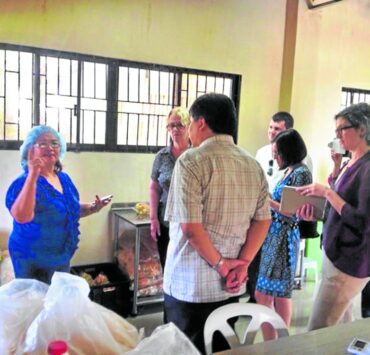Value moms’ role in care economy

While the Philippines is recognized as one of the places in Asia-Pacific where women have greater economic participation, there remains a significant gap in gender equality.
In 2024, a study from the National Economic Development Authority estimated that 21.9 million women were working. There were about 8 million more men in the workforce. However, various studies point out that what may hamper women participation in the workforce is care work, especially those tedious domestic tasks such as cooking, caring for children or cleaning the house, as they are traditionally taken up by women in the typical Filipino household.
The question of women choosing between their family or their career was tackled in a webinar last April 24 organized by Oxfam Pilipinas, a rights-based feminist organization, as part of their efforts to highlight gender equality in micro, small and medium enterprises (MSMEs).
The forum, titled “Family or Career, Why Not Both?” was an avenue to show that it is possible for women not to choose between these two at all.
“We think it’s very important that women participate fully and fully in the labor force and in economic opportunities, [and] part of this is recognizing that household responsibilities are disproportionately carried out by women,” Oxfam Philippines director Lot Felizco says.
Care work, as it is, is not deemed as a bad thing; after all, it is where a culture of caring can be fostered, says Rowena Laguilles-Timog, a faculty member at the College of Social Work and Community Development of the University of the Philippines Diliman.
She studied unpaid care work among Filipino mothers during the COVID-19 pandemic, and found out that those who take up care work, undoubtedly mothers and women in the family, know that they have to do it, notwithstanding how herculean a task it is.
Her study also reveals that during the pandemic, care work consisted of not only household tasks but also being a tutor of sorts, especially for young children, as the health crisis halted face-to-face education.
“The mothers know the weight of care work, so they do it; they know it’s important. But they also know it’s heavy, and they don’t deny that they need help,” Laguilles-Timog explains.
“Care work is not mechanical. It includes the care [and] the concern of the person doing unpaid care work for whoever they are providing that to,” she says.

Not just the mother’s job
What’s also notable is that no mother was ever born already good at care work—and that’s where the solution lies. “They learned it, they studied it; it means everyone can also do it, regardless of anyone’s gender.”
Macario Jusayan of the Philippine Commission on Women (PCW), meanwhile, underscores the importance of care work to the family, the basic unit of society.
“These are duties that allow other people in the family to go to work, to study, to rest, to pursue what they want. If no one does care work, every family and home will suffer,” Jusayan explains.
Jusayan describes the imbalance of ascribing care work as a concern of the community and even the nation because it is a barrier to more women contributing productively to the economy.
“When care work is shared equally among family members, it provides opportunities for women to pursue careers, their jobs and contribute to the economy. Everyone will benefit from the results.”
Aside from breaking down notions that domestic work is for women, children stand to gain the most from this. “They will grow up knowing that care work is not just the mother’s job; it’s everyone’s job,” Jusayan points out.
“That’s how we raise the generation that values equality from the start. It should start at home.”

Key to national development
PCW is also pushing for care work to be included in the government’s Care Economy Policy Framework to treat it as essential to national development.
In a country where women spend 13 more hours a week on care work and one out of four women are not able to pursue a career due to these responsibilities, recognizing the care economy has the potential to create up to 4.5 million jobs by 2030, says Jusayan.
Recognition could come in the form of workplace flexibility in enterprises, such as flexible hours and leaves and paid caregiving days, and even policy reforms on the side of the government.
Jusayan cites cases where MSMEs, such as a local tech cooperative in Mindanao, found out that employees’ productivity, focus, and even happiness increased by simply adjusting their care-working staff’s schedule.
“The truth is, when workers are stressed about their care responsibilities at home, they are affected, they can’t focus,” Jusayan says. “What mother can focus on work knowing she left her child sick?”
At the end of the day, the discussion about care work should not make it something less than working a 9-to-5 job, says Kim Arveen Patria, campaigns director of Investing in Women.
“On the one hand, it’s good for women to think, ‘Should I neglect my job or career to prioritize my family?’ That question is valid,” Patria says. “For men, [conversely, the question is] ‘Should I neglect my family and focus solely on work?’”
“We believe that for equality to exist, the value of housework and earning a living must be recognized equally.”





















